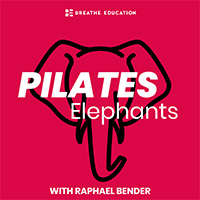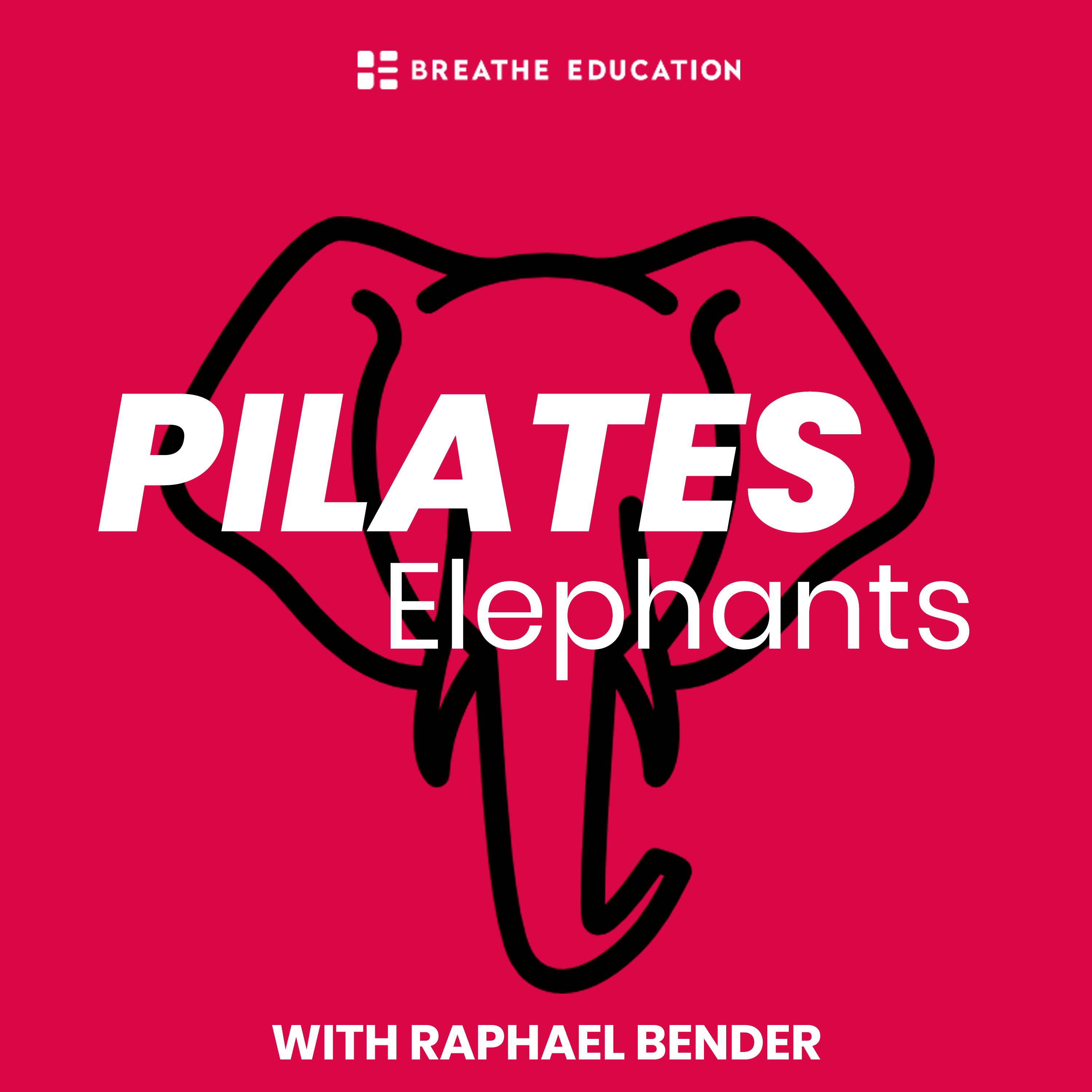Episode 32
32. Becoming a Movement Optimist
Greg Lehman…On Becoming a Movement Optimist
Join the conversation on Movement Optimism as Physiotherapist and strength and conditioning expert, Greg Lehman chats to Raphael Bender about Movement Optimism and the idea that everything is biomedically driven. We discuss why he prefers a comprehensive capacity approach in addition to looking to specific evidence-based research when helping clients prevent pain and injury. Greg also dives into the idea of muscle ‘dysfunction’ as a cause of pain, and why he never vilifies an activity or movement.
What You Will Learn:
- The philosophy of Movement Optimism and Greg Lehman’s framework for working within a biopsychosocial model
- Why biomechanics research invalidates the idea of dysfunction in muscles
- Why we shouldn’t worry about scapula dyskinesias despite what a recent study suggests
- Greg’s thoughts on the relationship between knee valgus and ACL injury
- The dichotomy of loading muscles and why it’s a misapplication of research
Explaining Pain
The fact that pilates clients are often looking for a definitive diagnosis for their pain is often a barrier to movement specialists using a biopsychosocial approach. Greg Lehman and Raph discuss why it is so critical to give clients a comprehensive explanation for their pain, in clear vocabulary that takes into account their life holistically, and how the Movement Optimism approach helps practitioners do that.
Whole-Person Wellbeing
We unpack the idea of reframing pain under an emergent approach rather than a linear one, how we can take a client’s lifestyle into account when discussing their concerns. As Pilates teachers, it is important to understand that we should not only be looking at research specific to their rotator cuff, or their hamstring or other areas of pain, but we also need to get the low-down on their stress levels, their sleep, and their all-round wellbeing to effectively support them.
Why ‘Vulnerable’ Muscles are a Myth
Greg also discusses the misapprehension perpetuated by some fitness influencers that certain muscles are ‘vulnerable’ in some way. Just because you see something happen once or twice in practice doesn’t make it a truth — jumping to faulty conclusions is dangerous for us and our clients. We explore why unvalidated theories get accepted as truth and how to bust baseless myths with good quality evidence-based research.
About Greg Lehman:
Greg is a Canadian physiotherapist, chiropractor, and strength and conditioning specialist treating musculoskeletal disorders within a biopsychosocial model. He is incredibly well-read, a highly skilled educator. And he’s funny.
Before his clinical career, Greg received a Natural Sciences and Engineering Research Council MSc graduate scholarship and became one of only two students each year to train with Professor Stuart McGill in his Occupational Biomechanics Laboratory, subsequently published more than 20 peer-reviewed papers in the manual therapy and exercise biomechanics field. He was an assistant professor at the Canadian Memorial Chiropractic College teaching a graduate-level course in Spine Biomechanics and Instrumentation as well as conducting more than 20 research experiments while supervising more than 50 students.
Greg has lectured on several topics on reconciling treatment biomechanics with pain science, running injuries, golf biomechanics, occupational low back injuries, and therapeutic neuroscience. His courses Reconciling Biomechanics with Pain Science and Running Resiliency have been taught more than 60 times in more than 40 locations worldwide.
How to Connect with Greg:
- You can find Greg Lehman online here
- You can find Greg Lehman on Twitter
- You can find the NAF Podcast here
About Raphael and Cloe:
Raphael Bender, CEO, Breathe Education
Raph believes everyone deserves the opportunity to transform into a better version of themselves. His main strength as a teacher and movement professional is the ability to distill complex research findings into a simple, science-based approach to help people move fearlessly, thoughtlessly, and painlessly. He LOVES running, weights, cycling, and Contrology.
Raph holds a Master’s degree in Clinical Exercise Physiology (Rehabilitation), a Bachelor’s degree in Exercise and Sports Science, Diploma of Pilates Movement Therapy, and STOTT PILATES full certification.
Cloe Bunter, Training Manager, Breathe Education
With 8+ years in the industry, both teaching Pilates and nurturing new instructors, Cloe is passionate about empowering new and seasoned instructors to think critically and move fearlessly. Empowered instructors empower their clients, and in turn, change lives.
She finds great joy in building connections with clients, students, colleagues, and the broader movement and rehab community. Co-hosting the Pilates Elephants Podcast, with Raphael Bender, has provided an incredible platform to bust common Pilates, movement, and rehab myths whilst creating a worldwide community of critical thinkers who are elevating health literacy.
Cloe is fascinated by movement in general, and its ability to enhance our lives, at any age. Her own movement practice includes Contrology/Pilates, running, weights, and kettlebells. She has a Diploma of Clinical Pilates, Cert IV in Pilates, and Cert IV in Training and Assessing.
How to Connect with Raphael and Cloe:
- You can find Breathe Education online here
- You can find Cloe Bunter on Instagram here: @cloebunterpilates
- You can find Raphael Bender on Instagram here: @the_raphaelbender
Resources mentioned in the episode:
- Can we actually measure spinal stability, and does it change as a result of spinal stabilization exercise?
- Shamsi et al (2017) Comparison of spinal stability following motor control and general exercises in nonspecific chronic low back pain patients
- Shoulder rehabilitation
- Improvement in pain and function after surgical rotator cuff repair unrelated to changes in tear size over two years – Kukkonen et al. (2015) Treatment of Nontraumatic Rotator Cuff Tears: A Randomized Controlled Trial with Two Years of Clinical and Imaging Follow-up
- Littlewood A self-managed single exercise program versus usual physiotherapy treatment for rotator cuff tendinopathy: a randomized controlled trial (the SELF study)
- Exercise as a painkiller
- Vaegter et al. (2014) Isometric exercises reduce temporal summation of pressure pain in humans
- Vaegter et al (2015) Aerobic Exercise and Cold Pressor Test Induce Hypoalgesia in Active and Inactive Men and Women
- The Scapular dyskinesis debate
- The original paper – Hickey et al. (2018) Scapular dyskinesis increases the risk of future shoulder pain by 43% in asymptomatic athletes: a systematic review and meta-analysis
- The rebuttal – Littlewood & Cools (2018) Scapular dyskinesis and shoulder pain: the devil is in the detail
- Strengthening hip abductors improves knee pain but does not change valgus
- Ferber et al. (2011) Changes in Knee Biomechanics After a Hip-Abductor Strengthening Protocol for Runners With Patellofemoral Pain Syndrome
Download a free course guide:
Become a Breathe Education Mentor Affiliate: Program info
This podcast uses the following third-party services for analysis:
AdBarker - https://adbarker.com/privacy


